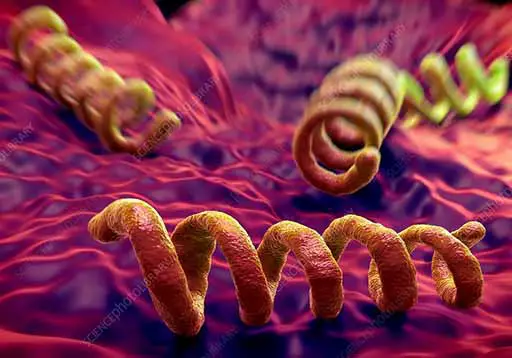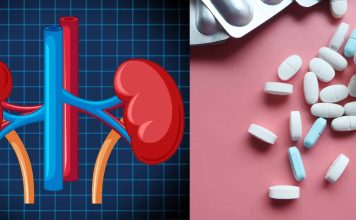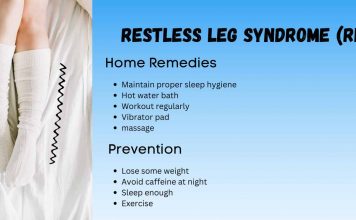Table of Contents
Syphilis vs herpes overview
Syphilis and herpes both are sexually transmitted diseases, syphilis is caused by a bacteria called Treponema pallidum and herpes is caused by a virus called Herpes simplex virus.
Although they are sexually transmitted diseases are so named because they’re transmitted mostly during sexual activities. They are often called sexually transmitted infections or STIs.
Sexually transmitted infections can be classified according to the source of the infections, such as;
Bacterial
- Syphilis caused by Treponema pallidum
- Gonorrhea caused by Neisseria gonorrhea
- Chancroid caused by Haemophilus ducreyi
Viral
- Genital herpes caused by Herpes simplex virus
- Acute and chronic hepatitis caused by Hepatitis B and C virus
- AIDS caused by HIV
- Genital warts caused by HPV
Fungal
- Vaginitis caused by Candida albicans
Protozoal
- Vaginitis caused by Trichomonas vaginalis
Both syphilis and herpes are transmitted mostly via sexual routes but they are not caused by the same organism.
Latent period
The latent period of Syphilis is 9 to 90 days.
The latent period of the Herpes simplex virus is around 2 to 12 days.
Read Incurable STDs
Symptoms
The symptoms of syphilis and herpes are quite different although some of the symptoms may be similar.
Syphilis symptoms
The symptoms of syphilis vary in different phases of the disease.
Symptoms of primary syphilis
- After the latent period, a papule generate on the site where the bacteria resides
- Then the papule may convert into an ulcer
- The local lymph nodes can be enlarged due to invasion by the bacteria
Symptoms of secondary syphilis
- Fever
- Arthralgia
- Sore throat
- Enlargement of the lymph node throughout the body
- There can be a red or brown maculopapular rash (mostly around the umbilicus)
- A special type of patch named snail-track can be found in the oral cavities and sometimes on the genitalia
Symptoms of tertiary syphilis
- Gummas can appear in the bone and internal organs
- A circulatory problem in the aorta (regurgitation)
- Neurosyphilis may develop
Herpes symptoms
Usually, HSV1 occurs in the oropharyngeal area and HSV2 occurs in the genitals. But nowadays oral sexual activities are quite popular and both types can occur in both places.
Symptoms of HSV
- Cold sores
- Pharyngitis
- Stomatitis
- Corneal ulceration (eye ulcer)
- Fungal infections
- Eczema
- Encephalitis
Symptoms of HSV2
- Genital ulcer
- Neonatal ophthalmic infections (an infection spread from the mother to the fetus during the process of delivery)
- Meningitis
Diagnosis
The diagnosis of syphilis and herpes is quite different as Syphilis is caused by a bacteria it can be cultured. On the other hand, Herpes is caused by a virus that cannot be cultured or stained.
Syphilis diagnosis
Traditional method
Serum is collected from the lesion of primary syphilis and treponema pallidum can be diagnosed by
- Darkfield illumination test
- PCR

Serological tests
Non-specific tests
- VDRL (venereal diseases research laboratory) test
- Rapid plasma regain test (RPR)
Specific tests
- Treponemal antigen-based enzyme immunoassay for IgG and IgM
- TPHA test
- TPPA test
- FTA-ABS test
Herpes Diagnosis
To detect a virus-borne disease the best method is to apply PCR (polymerase chain reaction).
There are some other methods such as Rapid tests that can be applied to the Herpes simplex virus.
PCR is the main method which is used to diagnose the Herpes simplex virus.
Treatment
The treatment of syphilis and Herpes are quite different because in syphilis our body has to fight against bacteria, which is quite easy.
On the other hand, in Herpes, our body has to fight against a virus, which is quite difficult.
Syphilis treatment
- The p drug for the treatment of syphilis is penicillin.
- In some people, penicillin causes strong hypersensitivity reactions. In these people, doxycycline can be used
- All patients must be cured in a hospital
- Partners of the affected person should be screened and treated also
Note: in pregnancy penicillin is the drug of choice. If the person is hypersensitive then erythromycin can be used.
Read Oral Gonorrhea vs Strep Throat
Herpes treatment
- Localized disease should be treated within 48 hours of the appearance
- The doctor may prescribe oral acyclovir (an antiviral drug) for oral infections
- If the doctor suspects any neural manifestation, he may start immediate antiviral therapy
- In immunocompromised patients such as a person with diabetes mellitus, a different group of a drug such as foscarnet can be used
Prevention
As both syphilis and herpes are sexually transmitted infections, the prevention of both diseases is quite similar. The prevention methods may include;
- Restrictions from sex for a certain period unless the disease is treated
- Reduction of the number of sex partners can be useful
- Using condoms prevents the spread of sexually transmitted diseases by up to 99%
- Mutual monogamy should be inspired
- Using the intravenous drug should be prohibited
- Blood and other intravenous product should be screened before infusion
- Overall maintaining good health hygiene is mandatory
- Syphilis-affected mothers may need to undergo cesarean section before the term of pregnancy
Complication
Complications of syphilis
- Headache
- Stroke
- Meningitis
- Hearing loss
- Sexual dysfunction (mostly in men)
- A certain level of dementia
- Gradual dimness of vision etc.
Complications of herpes
- Meningitis
- Transverse myelitis
- Viral encephalitis
- Bell’s palsy
Statistics
Prevalence of syphilis
According to the world health organization (who), there were an estimated 6.3 million new cases of syphilis globally in the year 2016.
In the USA, the number of reported cases of syphilis has been increasing progressively over the past few decades, with more than 130,000 cases reported in 2019.
Syphilis occurs mostly in men than women, and men who are homosexual are more at risk. In 2019, homosexual men accounted for 55% of all reported syphilis cases in the USA.
Syphilis rates are also higher among certain racial and ethnic groups in the United States. In 2019, the highest rates of syphilis were reported among black individuals, followed by Hispanic or Latino individuals.
Prevalence of herpes
According to the world health organization (who), an estimated 3.7 billion people worldwide under the age of 50 have herpes simplex virus type 1 (hsv-1), which typically causes oral herpes.
Genital herpes, which is typically caused by herpes simplex virus type 2 (hsv-2), is less common than oral herpes but still affects a significant number of people. According to the who, an estimated 417 million people aged 15-49 years have hsv-2 infection worldwide.
In the united states, the centers for disease control and prevention (CDC) estimates that around 1 in 8 people aged 14-49 have genital herpes.
Genital herpes occurs mostly in women than men. In 2019, women accounted for 57% of all reported cases of genital herpes in the us.
Takeaway
In conclusion, while syphilis and herpes are both sexually transmitted infections, they are caused by different types of bacteria and viruses and have distinct symptoms, diagnoses, and treatment options.
Syphilis typically presents with a painless sore or ulcer at the site of infection, followed by a rash and other symptoms if left untreated. Herpes, on the other hand, causes painful blisters or sores on or around the genitals, mouth, or anus, which may recur over time.
Diagnosis of syphilis and herpes can involve blood tests, swabs, and visual inspection, and treatment options vary depending on the stage of infection and other factors. Antibiotics are typically used to treat syphilis, while antiviral medications are used for herpes.
Prevention of both syphilis and herpes involves practicing safe sex, getting tested regularly, and avoiding sexual contact during outbreaks. It is important to note that both infections can have serious health consequences if left untreated and that people with these infections may face stigma and discrimination.
Last Updated on March 5, 2023 by Learn From Doctor Team






